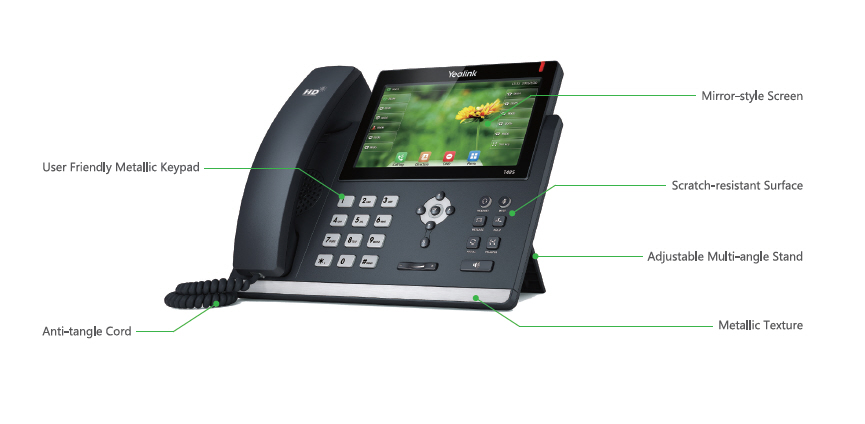Introduction
In today’s fast-paced digital world, communication has undergone a substantial transformation. Gone are the days when bulky landlines ruled the roost. Enter the modern marvel: VoIP phone systems. But what exactly is a VoIP phone? How does it work? And why should you consider switching from traditional telephony to this cutting-edge technology? In this elaborate guide, we’ll delve deep into the fascinating realm of VoIP phones, unraveling their intricacies while answering all your burning questions. Sit back, grab a cup of coffee, and let’s embark on this enlightening journey!
What is a VoIP Phone System?
A VoIP phone system, or Voice over Internet Protocol phone system, is essentially a technology that allows voice communications and multimedia sessions to be carried over Internet Protocol (IP) networks. Unlike traditional analog phones that rely on circuit-switched networks, VoIP converts sound into data packets and transmits them over the internet.
The Evolution of Telephony
The switch from analog to digital has been monumental in enhancing communication efficiency. With the advent of VoIP technologies in the late 1990s, businesses and individuals alike began recognizing its potential for cost savings and flexibility.
How Does It Work?
Curious about how all this magic happens? Here’s a simplified breakdown:
Sound Conversion: When you speak into a VoIP phone, your voice is captured by a microphone and converted into digital data. Data Compression: This data is then compressed for efficient transmission. Packetization: The compressed data is divided into packets. Transmission: These packets travel through the internet to reach their destination. Reassembly: Upon arrival, they’re reassembled into audio signals that play through the recipient’s speaker.Voila! Your voice travels at lightning speed across cyberspace.
Types of VoIP Phone Systems
Understanding the various types of VoIP solutions can help you make an informed choice when selecting one for your needs.
1. Hosted VoIP
Hosted VoIP services are managed off-site by service providers. They handle everything from maintenance to updates.
Pros
- Lower upfront costs No need for extensive hardware Scalable
Cons
- Dependence on internet connectivity Less control over features
2. On-Premises VoIP
This type requires organizations to host their own servers.
Pros
- Greater control over infrastructure Customizable features
Cons
- Higher initial investment Ongoing maintenance responsibility
3. Mobile VoIP
Mobile VoIP applications allow users to make calls via smartphones using Wi-Fi or mobile data.
Pros
- Flexibility and mobility Cost-effective international calls
Cons
- Quality depends on internet connection
Advantages of Using a VoIP Phone System
Switching to a VoIP phone system can provide numerous advantages that can revolutionize your communication strategy:
Cost Efficiency
One of the primary reasons businesses opt for VoIP is cost savings. Traditional phone lines often come with exorbitant fees for long-distance or international calls. With VoIP, these costs are significantly reduced since calls traverse through an existing internet connection.
Flexibility and Scalability
Whether you're running a small startup or managing an expansive enterprise, flexibility matters! Adding new lines or extensions in traditional systems often involves complex processes and additional costs. In contrast, adding users in a VoIP environment can be as simple as clicking “Add User” in your dashboard—voilà!
Enhanced Features
Most modern VoIP systems come packed with features like voicemail-to-email transcription, call forwarding, video conferencing capabilities, and more—all included without hefty upgrade fees.
Disadvantages of Using a VoIP Phone System
While there are many compelling reasons to jump on the bandwagon, it's also important to consider some drawbacks:

Internet Dependency
VoIP relies heavily on internet connectivity; if your internet goes down—so does your phone service! Therefore, having a reliable internet connection is paramount for optimal performance.
Quality Concerns
Call quality may suffer due to bandwidth limitations or network congestion—especially if multiple devices share the same connection simultaneously.
Common Uses of VoIP Phones in Businesses
Businesses across various sectors have embraced VoIP technology not just for its cost-effectiveness but also for enhanced collaboration and productivity.
Remote Work Solutions
With remote working becoming increasingly popular, integrating VoIP phone systems allows teams to stay connected regardless of location—making meetings seamless with features like video conferencing and screen sharing capabilities.
Customer Support Services
Many organizations utilize VoIP technology for their customer service departments due to its ability to manage high call volumes efficiently while providing features such as call queuing and automated responses.
How Does One Set Up a VoIP Phone System? A Step-by-Step Guide
Setting up your very own VoIP phone system might seem daunting at first glance—but fear not! Follow these straightforward steps:
Step 1: Assess Your Needs
Evaluate how many users will need access to the system and which features will benefit your organization most effectively.
Step 2: Choose Your Provider
Research different providers based on pricing plans, available features, customer support reputation, etc., before making your decision.
Step 3: Equip Yourself with Hardware
You may need specific equipment such as SIP phones or adapters (if using traditional phones) alongside headsets/microphones for enhanced audio quality during calls.
Step 4: Configure Settings
Once you've chosen your provider and acquired necessary hardware/software configurations must be done within both network settings & user accounts so everything works smoothly together!
Key Features to Look For in a VoIP Phone System
When scouring options available out there—it’s essential not just any VoIp phone system, but rather one tailored specifically toward optimizing YOUR unique business needs!
Call Management Features (e.g., forwarding/voicemail) Video Conferencing Capabilities Integration with Other Platforms (CRM) Scalability Options (expanding easily) Security Measures (encryption protocols)Do I Need Special Equipment for My New System?
Nope! While you may want dedicated hardware such as SIP-enabled desk phones or headsets—most modern systems can function perfectly well using regular computers/mobile devices if they meet certain requirements!
FAQs
1. What distinguishes a traditional telephone from a Voip phone?
Traditional telephones operate via circuit-switched networks requiring physical connections between callers whereas VoIp phones transmit voice data packets over IP networks making them more flexible & efficient!
2.Is it possible to keep my current number when switching?

3.How secure are my conversations with this technology?
Modern encryption protocols protect conversations ensuring privacy remains intact throughout communications taking place via these platforms!
4.Can I use my smartphone as part of my new setup?
Sure thing! Many applications enable smartphone integration allowing users access regardless where they happen live/work corresponding remotely with colleagues/customers alike easily!
5.Is technical know-how necessary when utilizing one?
Not at all—most systems come equipped user-friendly interfaces ensuring anyone familiar basic tech concepts can navigate confidently without hassle whatsoever!
6.Are there any hidden fees associated with using these services?
Carefully reviewing contract details beforehand helps circumvent surprises later down line; always ensure transparency regarding pricing structures before committing long-term engagements!
Conclusion
In conclusion, diving into the world of Voice over Internet Protocol (VoIp) offers exciting opportunities http://cesargqvj739.theglensecret.com/using-voip-phone-systems-to-improve-sales-team-performance not just from an economic standpoint but also enhances overall communication strategies hence improving productivity levels significantly within organizations looking adopt new technologies effectively adapting changing landscapes around them seamlessly navigating complexities modern-day interactions entail! Now that you’ve armed yourself with comprehensive knowledge about VoIp phones, it’s time for action—consider whether transitioning might benefit YOU personally/professionally today onwards paving way success ahead one call at time!